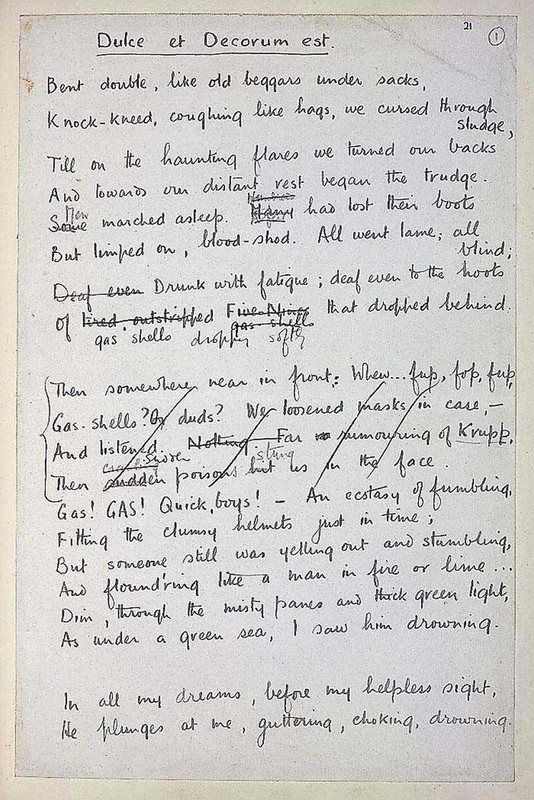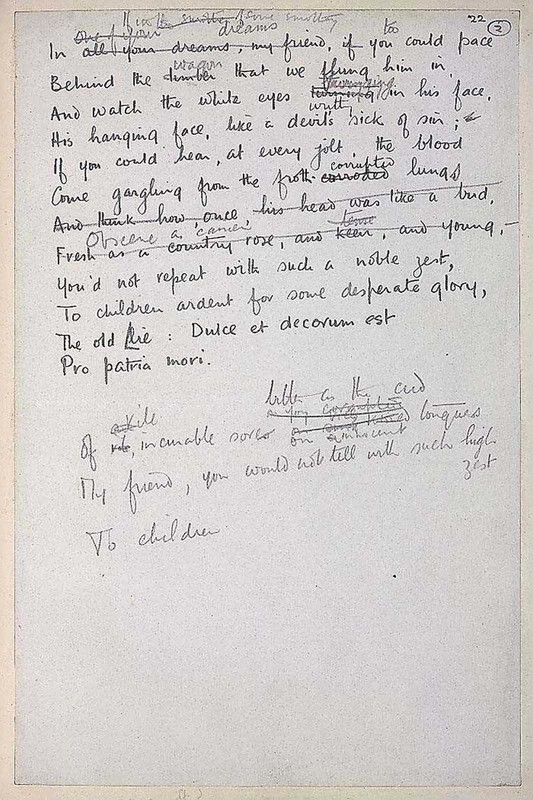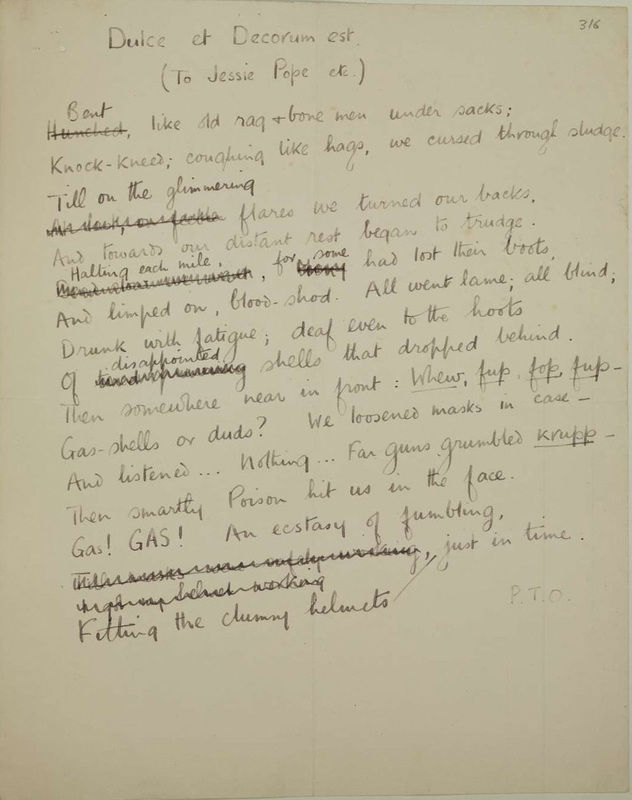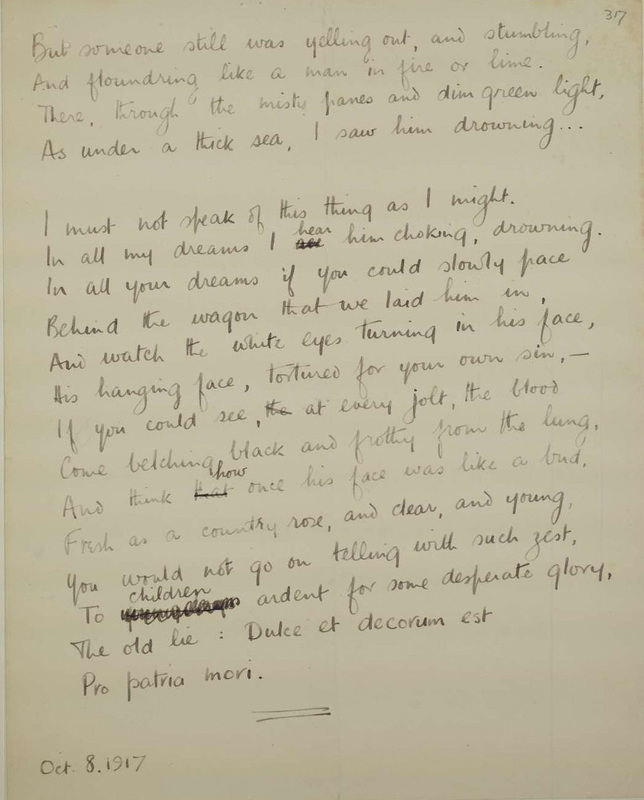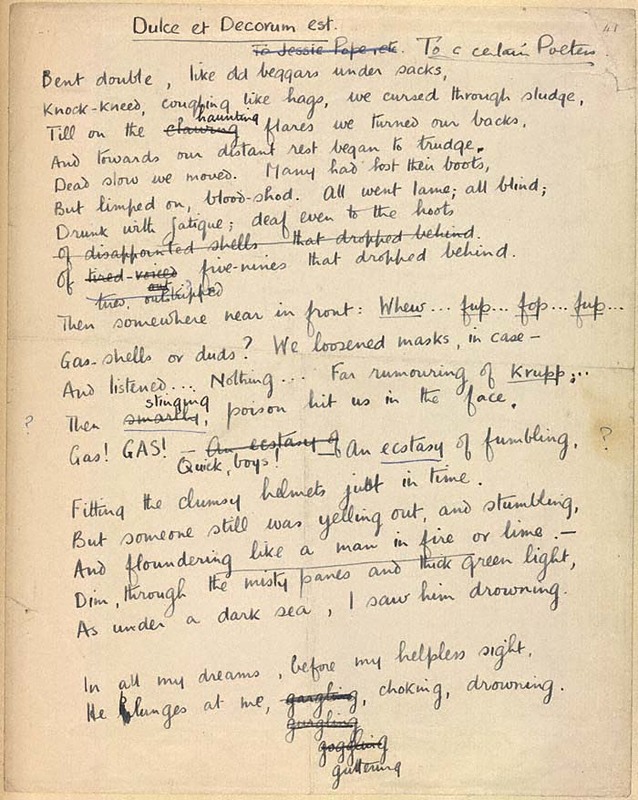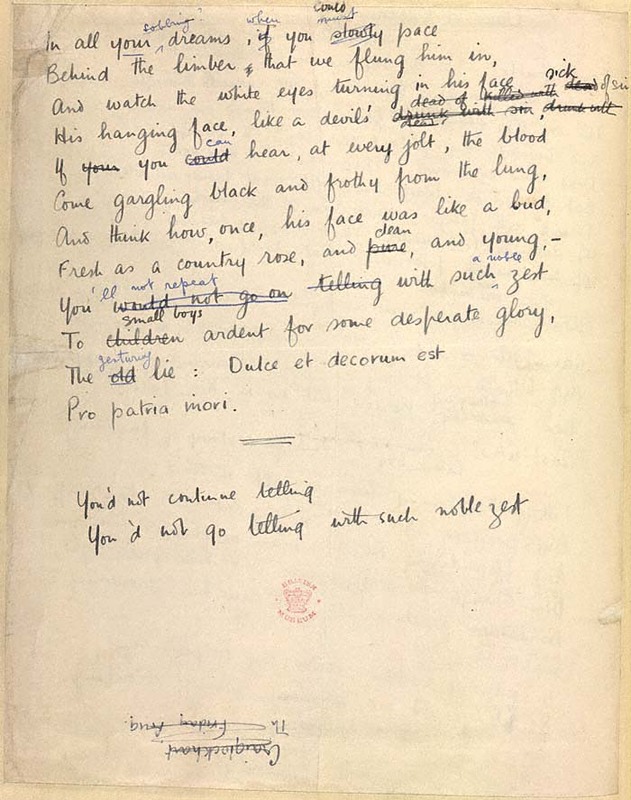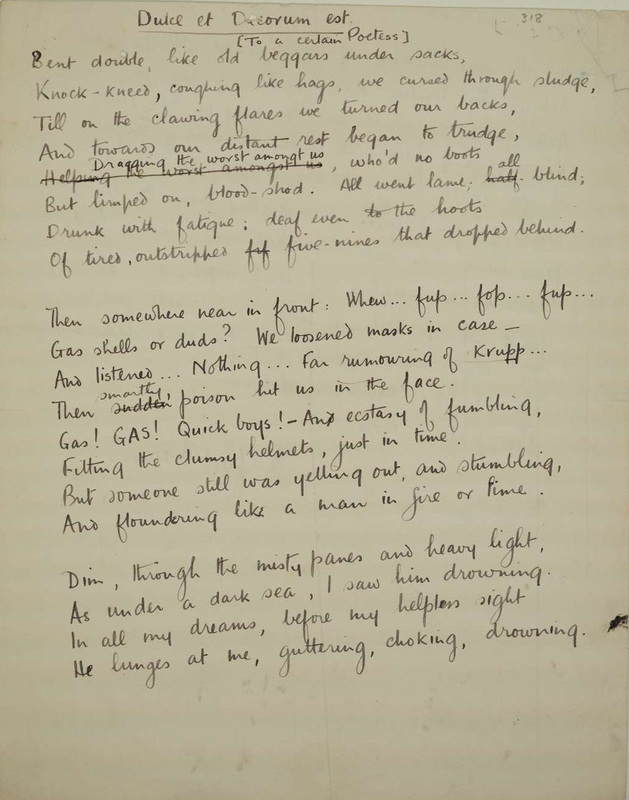
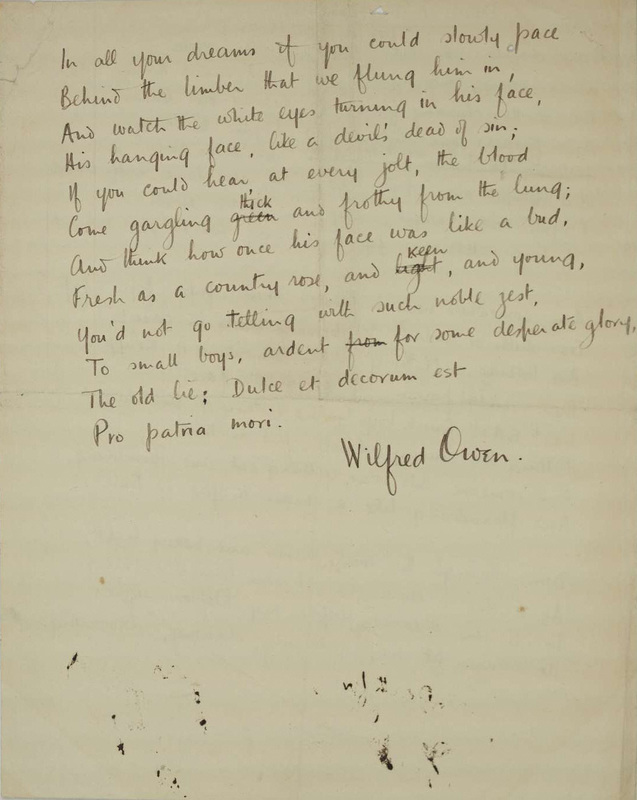 |
Dulce et Decorum est.
[To a certain Poetess]
Bent double, like old beggars under sacks,
Knock-kneed, coughing like hags, we cursed through sludge,
Till on the clawing flares we turned our backs,
And towards our distant rest began to trudge,
Dragging the worst amongst us, who'd no boots
But limped on, blood-shod. All went lame; all blind;
Drunk with fatigue; deaf even to the hoots
Of tired, outstripped five-nines that dropped behind.
Then somewhere near in front: Whew... fup... fop... fup...
Gas shells or duds? We loosened masks in case -
And listened... Nothing... Far rummouring of Krupp...
Then smartly, poison hit us in the face.
Gas! GAS! Quick boys! - An ecstasy of fumbling,
Fitting the clumsy helmets, just in time.
But someone still was yelling out, and stumbling,
And floundering like a man in fire or lime.
Dim, through the misty panes and heavy light,
As under a dark sea, I saw him drowning.
In all my dreams, before my helpless sight
He lunges at me, guttering, choking, drowning.
In all your dreams if you could slowly pace
Behind the limber that we flung him in,
And watch the white eyes turning in his face,
His hanging face, like a devil's dead of sin;
If you could hear at every jolt, the blood
Come gargling thick and frothy from the lung;
And think how once his face was like a bud,
Fresh as a country rose, and keen, and young,
You'd not go telling with such noble zest,
To small boys, ardent for some desperate glory,
The old lie: Dulce et decorum est
Pro patria mori.
Wilfred Owen
|


